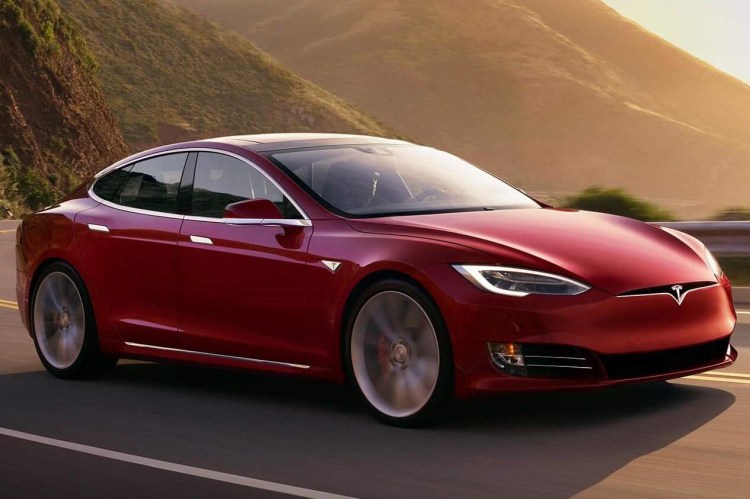Want smarter insights in your inbox? Sign up for our weekly newsletters to get only what matters to enterprise AI, data, and security leaders. Subscribe Now
Tesla CEO Elon Musk is finally sharing the “major improvements” coming to Tesla’s Autopilot feature.
In a press call this afternoon, Elon Musk described the “massive” 8.0 Autopilot software update, which turns the existing radar system inside Tesla cars into a primary source of information for the vehicle’s self-driving features. Musk said that with “fleet learning” the update will offer “probably a three-fold improvement in safety,” and called the coming radar-only braking feature “superhuman.”
The over-the-air software improvements are expected to be “deployed worldwide in one to two weeks” to Tesla Model S and X vehicles produced since October 2014, said Musk in a post on Tesla’s blog.
What’s changing
- Radar as primary sensor: Before the 8.0 update, the radar technology in Tesla cars was used as a supplement for the camera system, which detects obstacles visually. With the 8.0 update, the built-in radar system is now a primary signal, along with the vision system, enabling Teslas to detect, steer around, and brake for unrecognized objects. Previously “the radar and camera would have to agree, said Musk. “Unless the camera would recognize the object, it would not initiate a braking event. It’s quite tricky because there were lots of things the camera wouldn’t recognize.”
- More on radar: Musk says the updated processing of radar signals can now be used “to see beyond the car in front of you.” Radar “can see through rain, fog, snow, and dust quite easily,” Musk added.
- Fleet learning: Ideally, your car would never brake for an object that is not a safety threat, such as litter, an overpass, or a road sign. Musk says Tesla is using data from all of its cars on the road to develop a “list of exceptions” to “almost entirely eliminate false positives” that trigger unnecessary braking.
- UFOs and fluff: According to Musk, the limitations of Tesla’s vision and radar systems may cause its Model S and X cars to not automatically brake for fluffy objects, or even “a small deer.” Fielding questions from reporters, Musk added: “It should work for something like a moose, because a moose is quite a big mass.” With the 8.0 update, “the car should almost always hit the brakes correctly even if a UFO were to land on the freeway in zero visibility conditions,” Musk wrote on Tesla’s blog.
- How much safer? When asked about the magnitude of improvements brought by the 8.0 update, Musk said: “I would imagine that the 8.0 set of improvements, radar, inclusive of the others, probably cuts the accident rates more than in half — that’s my guess. I think it would make the Model S and X by far the safest on the road … This will improve over time due to fleet learning.”
- Would this update have saved Joshua Brown‘s life? “Yes,” said Musk, adding that “these things can not be said with absolute certainty.”
- Not “perfect safety”: With the 8.0 updates, Musk warned users that “perfect safety is really an impossible goal. It’s really about improving the probability of safety. … There won’t ever be zero injuries. So it’s really just about minimizing the probability of injury … of death … not the illusion of perfect safety.”
- Still not 100 percent autonomous: Like before, Tesla’s Autopilot feature remains semi-autonomous. It’s not designed to completely take over the car. “The new users of Autopilot are incredibly tentative,” said Musk. “Even intermediate users. It’s actually the people who know it best, ironically, where we see some of the biggest challenges.”
- Other 8.0 changes: Apart from radar, Musk says the update will introduce changes to Autopilot related to braking, highway exits, Autosteer, more prominent alerts, lane changing, and more.
Musk teased the 8.0 update on Twitter nearly two weeks ago. At the time, he said the changes would see a “wide release in a few weeks.” The announcement was delayed due to an “unusually difficult couple of weeks,” Musk said, following the explosion of SpaceX’s Falcon 9 rocket.


